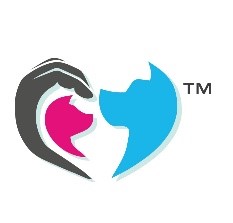ThinkBehaviour
This course is accredited a a Continual Professional Development course by the South African Veterinary Council.

SAVC CPD ACCREDITED: CPD points for SAVC accredited courses are only valid for qualified veterinarians and para-veterinary personnel in South Africa.
This course is ideal for anyone who wishes to further their study of the science of animal psychology and behaviour. We explore animal psychology, the intricate mental processes behind animal behaviour and cognition across species.
Students with no prior experience in this field may enrol for this course.
Students can enrol at any time.
A course for owners, vets, vet nurses and other professionals wanting to develop their skills of interpretation of animal behaviour.
The vast majority of dog and cat owners who have any kind of relationship or bond with their pet are naturally anthropomorphic. That is, they interpret the likely motivation and accompanying feelings, such as happiness or sadness, driving a particular aspect of their pet’s behaviour as if they were human.
As the saying goes ‘a dog is man’s best friend, while a cat is man’s best formal acquaintance’, but beyond the general beliefs about their behaviour, just how much do we really know about the mysterious inner workings of the mammalian mind?

Mammalian Behavioural Psychology
ThinkBehaviour
This course can be successfully completed by anyone who wants to take their understanding of the mammalian mind and behaviour a stage further. Each Unit of the course presents the facts in an accessible, jargon-free style that will help you unlock the mysteries of the inner workings of the animal mind and give you the information you need to enrich the relationship between you and your pets.
ThinkBehaviour is the companion course to DogWise. In ThinkBehaviour we explore animal psychology and the intricate mental processes behind all mammalian behaviour. This course is an ideal course in animal behavioural psychology for students who are interested in a career in veterinary medicine and any other professionals, in preparation for the COAPE Diploma in Animal Behaviour.
WHAT THE STUDENT WILL LEARN
Unit 1:
We start the course with an in-depth study into the components that make up the mammalian brain and how they work together. A grounding in basic brain anatomy and physiology forms the bedrock on which the other Units of this course are built.
Unit 2:
In Unit 2 we investigate learning and how it works in pets. Every pet owner can testify just how quickly their pet is able to learn something new, be it taught or something they picked up on their own, often quite inappropriately. What actually happens in the brain when something is learnt? How can we best utilise the latest scientific information to make learning fun for animals and for us? These questions are answered in Unit 2.
Unit 3:
Unit 3 addresses memory and its function. When individuals learn something, it has to be remembered and later recalled somehow. This is the job of memory. How does memory differ from learning? Do animals remember events in the same way that we humans do? In Unit 3 we answer these questions and many more on the nature of animal memory, its strengths, and its limitations.
Unit 4:
From fertilised egg to fully functional adult animal and on through to old age. We chart the pet’s journey through life exploring the critical points of development. We find out why these developmental stages are important and what actually happens inside the dog’s and cat’s brain that makes the difference between a well-balanced, sociable pet, and an unruly, antisocial problem animal.
Unit 5:
The way an animal ‘sees’ the outside world is nothing more than a clever ‘trick’ played on him by his brain. Dogs and cats rely on their brain’s sensory systems to gather in, process, interpret and make sense of all the information, such as light, sound, smell, touch and taste, bombarding their senses. They both have inherited predatory sensory systems from their ancestors. But in dogs, selective breeding for function by humans over the last few thousand years has altered the dog’s senses to best suit his role working alongside man. Over the last few hundred years, dogs have been selectively bred for appearance leading to a huge diversity in shape and size across the different breeds. In this Unit, we explore how animals perceive the outside world and the variation across the various types.
Unit 6:
In this final Unit, the student will draw on everything learned in the previous 5 Units to answer the question asked in this module: Can we ever know how animals really think? The quest to answer this question is fascinating, perplexing and highly controversial. Do they have an imagination? Can they think creatively? Can they think at all? We delve deep inside the animal’s mind and explore the very foundations of emotions, consciousness, personality and intelligence. We also explore communication and language and gain insight into just how much we can expect our animal companions to comprehend, drawing a line where anthropomorphism is no longer an asset, but becomes an obstacle between owners and their pets.
Unit 7:
This final Unit of the course is where the student has the opportunity to design and undertake a research-based project of their own choice that will expand on their understanding of the animal mind. The student will be given lots of help and guidance along the way to make this Unit not only enlightening, but the most rewarding and satisfying unit of them all.
WHAT CAN YOU DO WITH THINKBEHAVIOUR?
- Learn about the inner workings of the mammalian mind. ThinkBehaviour introduces students to mammalian neurophysiology and animal cognition through modern research conducted into this fascinating subject.
- ThinkBehaviour is the perfect bridging course for anyone who already has experience in the training or behaviour profession, in preparation for the COAPE Diplomas in Animal Behaviour.
COURSE INFORMATION
Markers:
- Leigh Shenker
- Jo Nicholas
Course Type:
Correspondence online.
Course Format:
The course is hosted on our dedicated Learning Management System (LMS) where you will find all your course material, resources, quizzes and recorded tutorials (if applicable). For each new unit you will be given access to the relevant material on the LMS, which you can conveniently view online. Your assignments consists of different parts for each unit, all of which are to be completed on the LMS.
Once you have completed your assignments and submitted them on the LMS, they are marked by one of our dedicated, highly experienced markers and sent back to you via the LMS.
Students have access to dedicated tutors where additional support is available.
Course Duration:
The duration of the course is 15 months, with a maximum time frame of 27 months if the Do-it-in-your-own-time option is chosen.
Students can enrol for this course and are given 3 months from the date of enrolment to order and start reading the books on the compulsory reading list before they are required to complete assignments. Once the course has started the student has compulsory hand-in dates for assignments which will be communicated through to each student via the LMS.
If the Do-it in-you-own-time option is chosen, students can enrol at any time, the course must be started within 3 months of enrolment. Assignments can be completed in their own time as long as they complete the course in the maximum allowed time-frame.
Abilities Required for This Course:
- This course contains practical assessment activities which involve sight, hearing observation and physical interactions/handling skills.
- Students must be computer literate, have the use of a computer with internet access and be able to operate basic programs such as Microsoft Word.
- A good command of the English language is essential.

